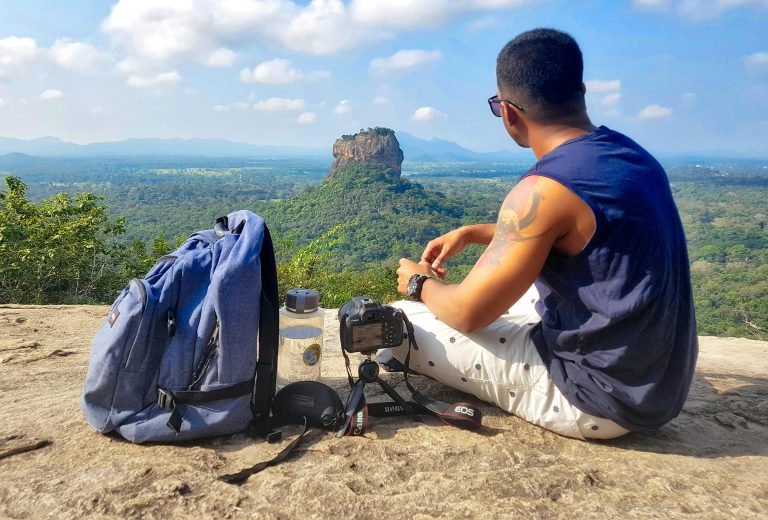Moving to a new city is a major life decision, one that can be influenced by various factors. For instance, residents of Austin may consider relocating due to the city’s scorching heat or the pursuit of better employment opportunities. However, before making this life-changing decision, it’s crucial to take a tour of your potential new city. Traveling and exploring it like a tourist can provide invaluable insights that help you make an informed choice.
Want to learn more about the importance of exploring a city that you might call home one day? In this article, we will discuss nine key reasons why taking a tour of your new city before moving is essential.
1. Understand the Difference in Living Costs and Expenses
One of the first things you need to consider when moving to a new city is the cost of living. Austin, for example, is known for being relatively affordable, with living expenses only 1 % higher than the national average. However, the city you’re planning to move to might have higher costs for groceries, healthcare, or other essentials. By visiting the city in person, you can get a realistic sense of these expenses, which helps in creating a better budget. This budget should include important costs such as housing, utilities, daily necessities, and hiring local movers in Austin. Understanding these differences in expenses will ensure that you’re financially prepared for the move and can maintain your standard of living.
2. You Get to Know Different Neighborhoods
Every city is a collection of diverse neighborhoods, each with its own character, amenities, and safety levels. Visiting the city allows you to explore these neighborhoods firsthand. Some areas may have a bustling, urban feel, while others might offer a quieter, suburban lifestyle. By touring these areas, you can identify which neighborhoods align with your lifestyle and preferences. This assessment is crucial for choosing a place where you’ll feel comfortable and where your daily needs, such as proximity to work, schools, or grocery stores, are met.
3. Experience the Local Culture
Every city has its unique vibe, influenced by local customs, traditions, and the lifestyle of its residents. By visiting the city, you get to experience this culture firsthand. Is it a good fit for you and your family? You’ll soon find out. Whether it’s the food, entertainment options, or the general community atmosphere, these cultural elements will affect your daily life. For example, you might discover that the city has a vibrant arts scene or a diverse food culture that excites you. Understanding the local culture helps you gauge whether the city’s lifestyle aligns with your own values and interests.
4. Evaluate Commute Times and Transportation
Transportation is a critical factor to consider when moving to a new city. Touring the city allows you to assess public transportation options, traffic patterns, and commute times to potential workplaces or schools. For instance, you may find that the city’s public transportation system is efficient and can save you from the hassle of driving in heavy traffic. On the other hand, you might realize that certain neighborhoods are more congested than others, affecting your daily commute. This information is vital for planning your daily routine and ensuring that you won’t be spending excessive time commuting.
5. Explore Recreational and Social Opportunities
Moving to a new city isn’t just about work and living expenses; it’s also about finding places where you can relax and enjoy your free time. Touring the city allows you to discover parks, gyms, clubs, and other recreational spots that suit your interests. But it isn’t just about finding places for activities; this is a chance to explore social opportunities, such as community events, local meet-ups, or hobby groups. These activities are essential for building a social network in your new city and making it feel like home.
6. Visit Potential Schools and Educational Institutions
If you have children or are planning to pursue further education yourself, evaluating the schools and educational institutions in your new city is essential. A visit allows you to assess the quality of education offered and the environment your children will be exposed to. You can tour the schools, meet with administrators, and get a feel for the curriculum and extracurricular activities available. This is also an opportunity to gauge the safety and facilities of the schools. If you’re considering higher education, visiting universities or colleges will help you understand what programs are available and whether they meet your academic or professional goals.
7. Investigate Healthcare Facilities
Healthcare is a vital consideration when moving to a new city. Touring your potential new home allows you to visit hospitals, clinics, and other healthcare facilities. You can assess the quality of care, the availability of specialists, and the proximity of these facilities to different neighborhoods. This is particularly important if you or a family member has specific medical needs that require regular attention. By visiting these healthcare providers, you can ensure that the city can adequately meet your medical requirements. Moreover, understanding the local healthcare system and insurance networks will help you make informed decisions about your healthcare coverage in the new city.
8. Test the Job Market
If your move is career-driven, it’s crucial to explore the job market in person (unless you’ve already landed a job there). While online research can provide a general overview, visiting the city allows you to attend job fairs, network with potential employers, and get a real sense of the industry presence in the area. This hands-on approach can reveal opportunities that might not be visible online, such as upcoming job openings or companies that are expanding. If possible, try setting up meetings with potential employers since it can give you a better understanding of the work culture and expectations in the new city.
9. Gauge the Weather and Environment
The climate and environment of a city can significantly impact your quality of life. By touring the city, you can experience the weather firsthand and understand how it will affect your daily life. This is particularly important if you’re moving from a place with a different climate, such as Austin, known for its extreme heat. Experiencing the weather during your visit will help you prepare for the necessary adjustments, whether that means investing in appropriate clothing, understanding seasonal changes, or preparing your home for the local climate.
By touring your new city before deciding to actually move, you equip yourself with the information needed to make an informed decision. This preparation ensures that your new city is not just a place to live but a place where you and your family can flourish and be happy. Taking the time to explore and understand your new city before moving will make the transition smoother and set the foundation for a successful and fulfilling life in your new home.


































